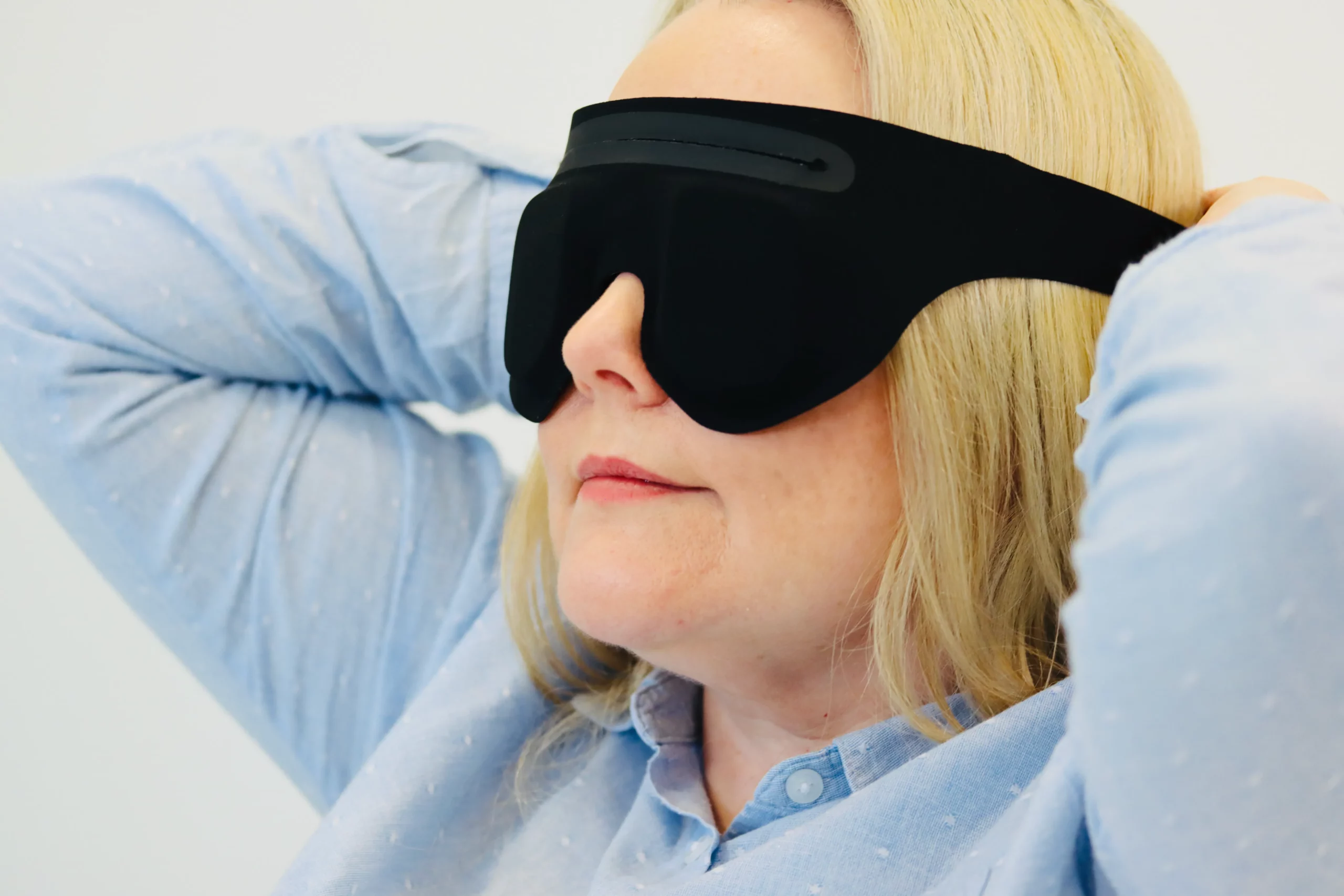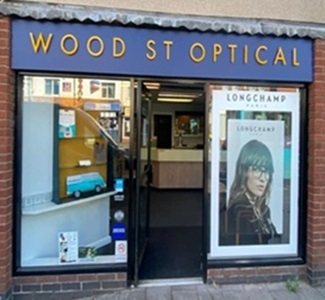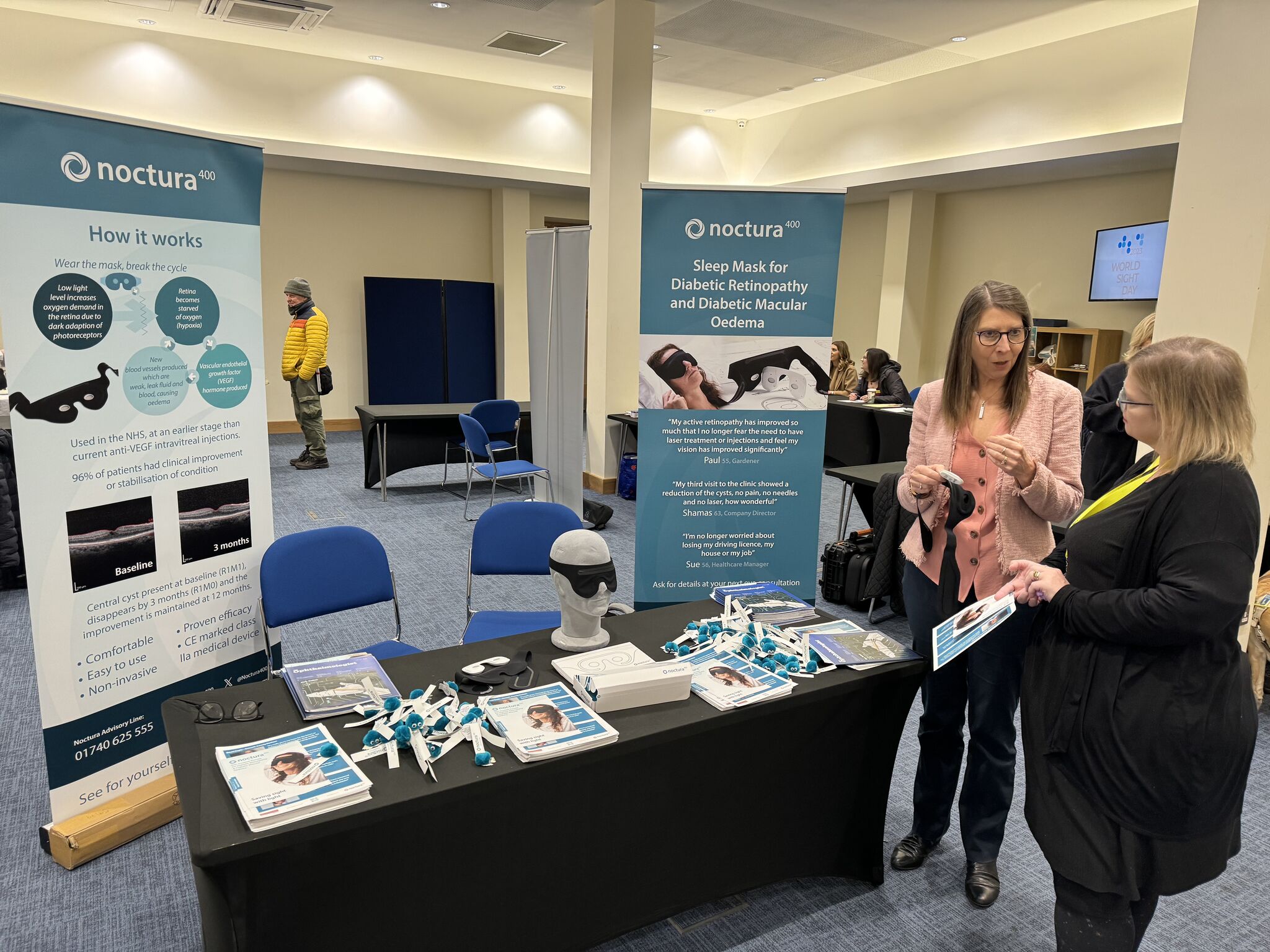

Telegraph featuring us over Christmas – and to let everyone know that Noctura 400 is now available from some NHS Trusts.
PolyPhotonix, a medical device research company based in County Durham, has created a new treatment for diabetic retinopathy, a condition that can cause blindness in diabetes patients. The Noctura 400 sleep mask is an early-stage, non-invasive treatment that delivers low-level light to a patient’s eyes while they sleep to prevent the eyes’ increased demand for oxygen. The mask has been found to improve or stabilise sight loss in diabetics and was effective in 96% of patients who took part in an observational study at Ashford and St Peter’s NHS Foundation Trust in Surrey.
The study published in the Journal of Ophthalmology involved 26 patients, and it showed that the mask demonstrated improvement and stabilisation of diabetic eye disease in 96% of patients. The Ashford and St Peter’s trust has already rolled out the treatment to 200 early-stage patients, and discussions are ongoing about introducing the device at 10 other trusts.
High blood sugar levels damage the retina, which can cause blindness if left untreated. It is one of the leading causes of sight loss in the UK, affecting nearly all Type 1 diabetics and two-thirds of Type 2 patients. Doctors only recommend treatment if they believe a person’s vision is at risk, which can involve injections into the eye or laser treatment.
The Noctura 400 mask provides a pain-free and gentle approach to treating or even preventing diabetic retinopathy and diabetic macular oedema. Using the mask on patients at an earlier stage could save the NHS £3,000 per patient, which could scale up to £180 million per year if it were adopted nationally. Eye injections, which are more invasive, cost roughly £4,200 per patient. Ulrich Meyer-Bothling, a consultant ophthalmic surgeon at the Ashford and St Peter’s Hospitals NHS Foundation Trust, said that the trust’s decision to offer the sleep mask as part of its diabetic retinopathy pathway is great news for patients and the NHS alike


